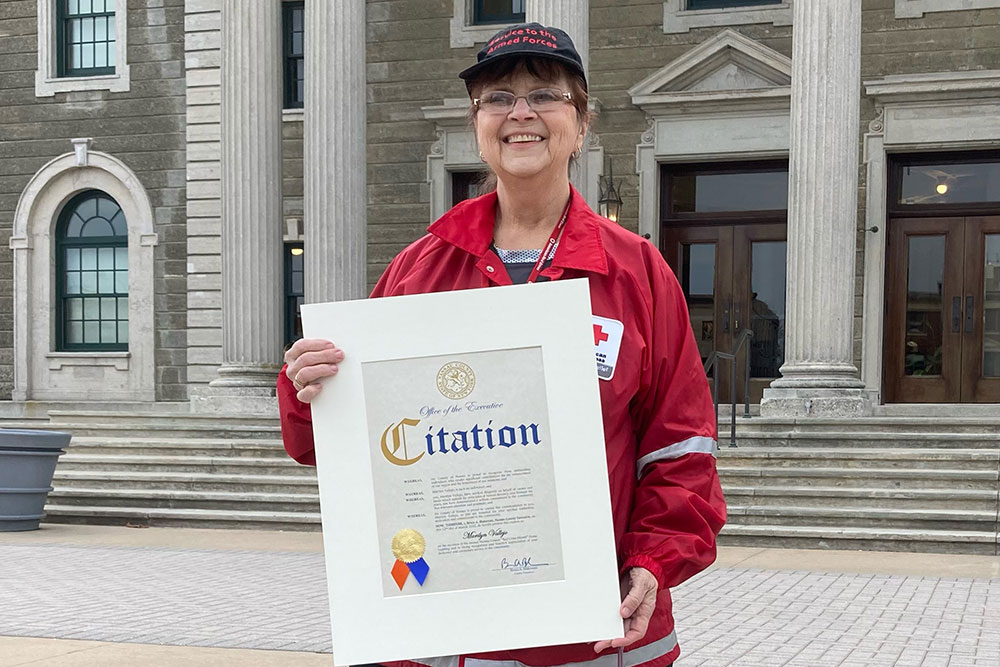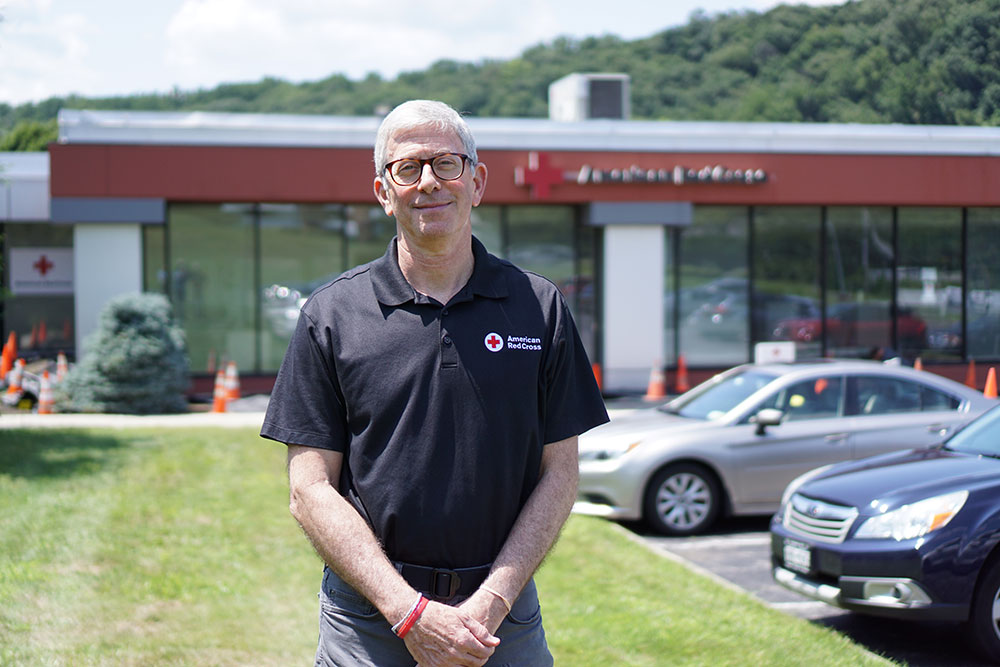

By Bernadette Casey, American Red Cross in Greater NY
Being skilled and physically ready to meet the demands of military service is vital, but it is equally important that service personnel and their families have resources available to address their mental wellness and emotional well-being.
Men and women in military service face challenging and dangerous situations protecting our country and its citizens. Plus, they face uncertainty during deployments that separate them from loved ones, daily routines, and support systems. Adjusting to life post-deployment and life as a veteran can be a difficult course to maneuver through successfully.
As part of its long-standing Service to the Armed Forces (SAF) program, the American Red Cross educates and empowers active military, reservists, veterans, and their families with important mental wellness tools through its Resiliency Workshops.
Red Cross volunteer and Long Island resident Marilyn Vallejo, who was a social worker for 38 years before retiring, is one of the licensed mental health practitioners who facilitates Resiliency Workshops and someone with deep ties to the military. Her husband, six of her brothers and her son-in-law all served in the military. As a young bride she remembers the feeling of isolation moving to off-base housing in a new place where she knew no one.
“Being part of a community and having support is so important to military families trying to get through the challenges of service, leaving family behind, moving, financial concerns,” says Vallejo. “People in the military don’t have the same choices as other families. If they are told they are leaving next week, they are leaving next week. The person in the household who remains at home takes on both roles. It is important to know people are going through the same challenge.”
Workshop topics address the unique circumstances of military families. Resilience and reconnection as well as mind-body wellness are themes that run through the workshops.
Vallejo points out that this is not an ongoing therapy session for participants, but an opportunity for a community with shared challenges to learn the tools and techniques needed to develop their own plan to cope with the guidance and support of a trained Red Cross mental-health facilitator.
Workshop topics include caregiving to a wounded soldier, connecting with kids, diffusing anger, effective communication and dealing with depression and guilt. A workshop was added around the topic of COVID.
“Things were worse because of the isolation caused by COVID. Being isolated has made it twice as hard and people don’t know where to get help,” says Vallejo, who has traveled nationally and internationally for SAF.
Alec Cecil, a retired psychologist from Westchester who worked with adolescent children and their families, has been facilitating Resiliency Workshops since 2013 and now also teaches other Red Cross volunteers how to run workshops.
Cecil has conducted workshops both virtually and in person in a number of states across the country and in several countries, including Germany.
According to Cecil, the workshops, which can have six to eight and sometimes up to 30 participants, were initially developed “to serve those being deployed or returning from deployment, but have expanded to be broader. We do a lot for National Guard and reservists. For them it can be more difficult because of a lack of community and sense of support. National Guard sign up for one weekend a month and when they find themselves deployed overseas it’s something they were not expecting.”
Cecil adds that dealing with stress and effective communications are popular topics.
“I never served [in the military], but I have a lot of respect for folks who do. This volunteer opportunity is a privilege. Doing this is very meaningful and fulfilling for me,” he adds.
Vallejo echoes that sentiment. “It is important that military personnel have happy households so they can go and do what they need to do to serve our country. It’s an honor to do this. It’s so rewarding. The military has my heart.”
To find out more about the Red Cross Services to the Armed Forces program, click here.